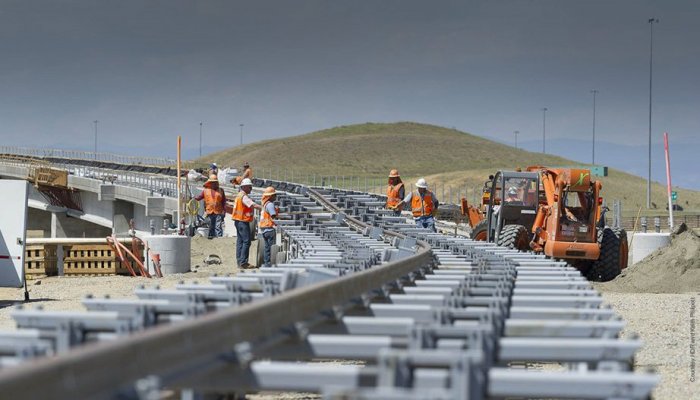Russian firms to construct refinery complex and railroad in Angola
Angola has given two Russian companies the go-ahead to build a major refinery complex and railroad in Angola that will assist the African nation – a major oil exporter – finally cut its reliance on imported petroleum.
Also read:Major deepwater port in Angola to open this year
The $12bn mega project is being put forward by companies Rail Standard Service and Fortland Consulting Company, which have set up a conglomerate with local partners.
Their plan is to build a 400,000-barrel daily refinery in the southwestern city of Namibe . The work will also consist of a rail link to the newly refurbished Benguela railroad.
An order signed by Angolan President José Eduardo dos Santos on 9 March gives the Russian joint venture consent to develop 10 square kilometres of land, and consigns the Angolan government to buying 364,000 bpd of petrol and other fuels as production increases over an 11-year period.
The investors will profit from eight-years of tax exemptions and will be permitted to send home their profits.
The first stage of this project will be a petroleum desalination unit to be constructed over three and a half years.
Also read:Angola relies on society to implement housing programme
The project is Angola’s newest attempt to set up a refining and petrochemical industry to extort more value from its oil production, currently the leading in Africa at 1.7 million bpd.
Now the nation depends on the Refinaria De Luanda, owned by state oil company Sonangol.
This was built in 1955, and has a production capacity of something like 65,000 bpd. Products from this refinery are supposedly more expensive than imports. There is also the Chevron’s Cabinda Refinery, but this make only 16,000 bpd.
The government announced in 2015 that it was teaming up with a Chinese conglomerate to construct a plant at Soyo, near Angola’s northern border with the Democratic Republic of Congo. This $14bn, 400,000 bpd scheme, to be called the Prince of Kinkakala, is now being “reassessed”, according to the Angolan press.
